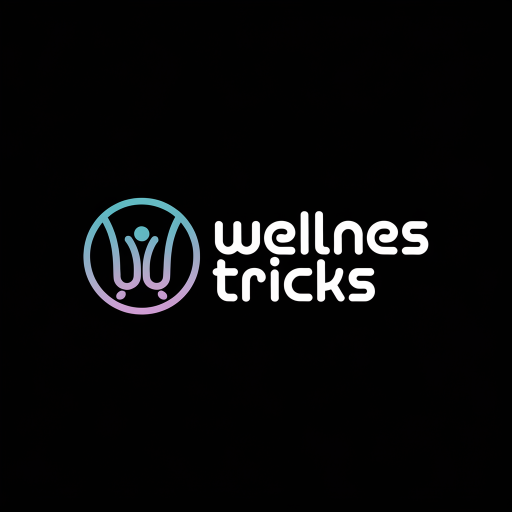7 Daily Habits That Naturally Boost Your Immune System
Did you know that nearly 70% of your immune system resides in your gut? This statistic highlights the crucial role your daily habits play in maintaining a robust immune response. By simply adjusting a few aspects of your lifestyle, you can significantly enhance your body’s defenses. From the food you eat to your stress management techniques, each choice contributes to your overall health. Let’s explore seven daily habits that can help you naturally boost your immune system.
Key Takeaways
- Aim for seven to nine hours of restful sleep nightly to enhance immune function and body repair processes.
- Stay hydrated by drinking at least eight 8-ounce glasses of water daily, incorporating hydrating foods for optimal immune support.
- Engage in regular physical activity to improve blood circulation, reduce stress hormones, and enhance overall immune resilience.
- Maintain a balanced diet rich in fruits, vegetables, whole grains, and lean proteins to provide essential vitamins and minerals for immune defense.
- Practice mindfulness techniques and good hygiene, including regular handwashing and disinfecting surfaces, to reduce stress and prevent illness.
Prioritize Sleep for Immune Health
To supercharge your immune system, prioritize getting quality sleep every night.
Research shows that adequate sleep helps your body produce protective proteins and immune cells, which are crucial for fighting off illness.
When you sleep, your body undergoes repair processes, strengthening your defenses against infections.
Aim for seven to nine hours of restful sleep, and establish a consistent sleep routine to boost your immune system naturally.
Avoid screens before bedtime, create a calming environment, and practice relaxation techniques to enhance sleep quality.
Additionally, quality sleep is linked to improved immune response, making it essential for overall health.
Stay Hydrated Throughout the Day
Staying hydrated throughout the day is essential for a robust immune system.
When you’re well-hydrated, your body can efficiently transport nutrients and eliminate toxins, supporting immune function.
Research shows that even mild dehydration can impair your body’s ability to fight off infections.
Aim for at least eight 8-ounce glasses of water daily, but adjust based on your activity level and climate.
Incorporating hydrating foods like fruits and vegetables can also help.
Keep a water bottle handy, set reminders, and make hydration a priority.
Drinking lemon water in the morning can further enhance your immune system’s function, providing a boost of vitamin C and antioxidants.
You’ll feel more energized, and your immune system will thank you for it!
Incorporate Regular Exercise Into Your Routine
Engaging in physical activity can strengthen your body’s defenses, making you more resilient against illness.
Here are three compelling reasons to get moving:
- Increased blood circulation: Exercise boosts blood flow, helping immune cells travel more efficiently throughout your body.
- Stress reduction: Physical activity lowers stress hormones, which can negatively impact your immune response when elevated.
- Enhanced sleep quality: Regular exercise promotes better sleep, allowing your body to recover and strengthen its defenses.
Additionally, regular physical activity can lead to improved overall health, further supporting your immune system.
Eat a Balanced Diet Rich in Nutrients
Eating a balanced diet rich in nutrients is essential for bolstering your immune system. Incorporate a variety of fruits, vegetables, whole grains, lean proteins, and healthy fats into your meals. Foods high in vitamins C and D, zinc, and antioxidants help strengthen your body’s defenses. For example, citrus fruits boost vitamin C levels, while nuts provide vital minerals. Aim for colorful plates; different colors often signify a range of nutrients. Remember, hydration plays a role too—drink plenty of water. Additionally, specific vitamins like vitamin D are crucial for enhancing immune function, making it important to include them in your diet.
Manage Stress With Mindfulness Techniques
Managing stress is crucial for a strong immune system, and mindfulness techniques can make a significant difference.
Incorporating breathing exercises into your daily routine can lower anxiety levels and enhance your overall well-being.
Guided meditation practices can also help you center your thoughts and promote relaxation, giving your immune system the boost it needs. Additionally, just 10 minutes of daily meditation can significantly improve brain function and emotional health.
Breathing Exercises Benefits
Have you ever noticed how taking a deep breath can instantly change your mood?
Breathing exercises are powerful tools to manage stress and enhance your well-being.
By incorporating these simple techniques into your daily routine, you can experience significant benefits:
- Reduces Anxiety: Deep, intentional breaths help calm your nervous system, easing feelings of anxiety.
- Improves Focus: Controlled breathing increases oxygen flow to your brain, sharpening your concentration.
- Boosts Immune Function: Mindful breathing activates your body’s relaxation response, supporting a stronger immune system.
Embrace these exercises to foster a healthier, happier you!
Guided Meditation Practices
Building on the benefits of breathing exercises, guided meditation practices offer another effective way to manage stress and enhance your overall well-being. Research shows that guided meditation can lower cortisol levels, helping you feel more relaxed and centered.
By focusing your thoughts and cultivating mindfulness, you can improve your emotional resilience and strengthen your immune response.
You don’t need to be an expert; simply find a quiet space, listen to a guided session, and let the instructions lead you. Regular practice can help you develop a habit of mindfulness, empowering you to navigate daily stressors with greater ease.
Get Plenty of Fresh Air and Sunshine
Getting plenty of fresh air and sunshine is crucial for your immune health.
Vitamin D, which your body absorbs from sunlight, plays a key role in strengthening your immune system and reducing inflammation.
Additionally, fresh air enhances your mood and energy levels, helping you feel your best every day.
Vitamin D Benefits
Vitamin D, often referred to as the “sunshine vitamin,” plays a crucial role in supporting your immune system.
When you soak up the sun, you’re not just enjoying a beautiful day; you’re also enhancing your health.
Here are three amazing benefits of Vitamin D:
- Improves your mood: Sunlight boosts serotonin levels, helping you feel happier and more energized.
- Strengthens your defenses: Adequate Vitamin D levels can reduce your risk of infections and illnesses.
- Promotes better sleep: Healthy Vitamin D levels can lead to improved sleep quality, aiding overall recovery.
Fresh Air Advantages
Fresh air and sunshine are vital components of a healthy lifestyle, significantly impacting your immune system.
When you breathe in fresh air, you’re not just refreshing your lungs; you’re also enhancing your oxygen levels, which boosts your immune function.
Sunlight helps your body produce vitamin D, crucial for regulating immune responses.
Spending time outdoors can reduce stress levels, too, which is known to weaken immunity.
Aim for at least 20 minutes of fresh air daily.
Whether you take a walk or relax in your yard, these habits can strengthen your body’s defenses and promote overall well-being.
Practice Good Hygiene Habits
Practicing good hygiene habits is one of the most effective ways to strengthen your immune system and fend off illness.
By incorporating simple daily routines, you can significantly reduce your risk of infections.
Here are three essential practices you should adopt:
- Wash your hands regularly with soap and water for at least 20 seconds, especially after being in public spaces.
- Disinfect surfaces frequently touched, like doorknobs and smartphones, to eliminate harmful germs.
- Avoid close contact with sick individuals to minimize exposure to contagious diseases.
These habits not only protect your health but also promote a healthier environment for everyone around you.

